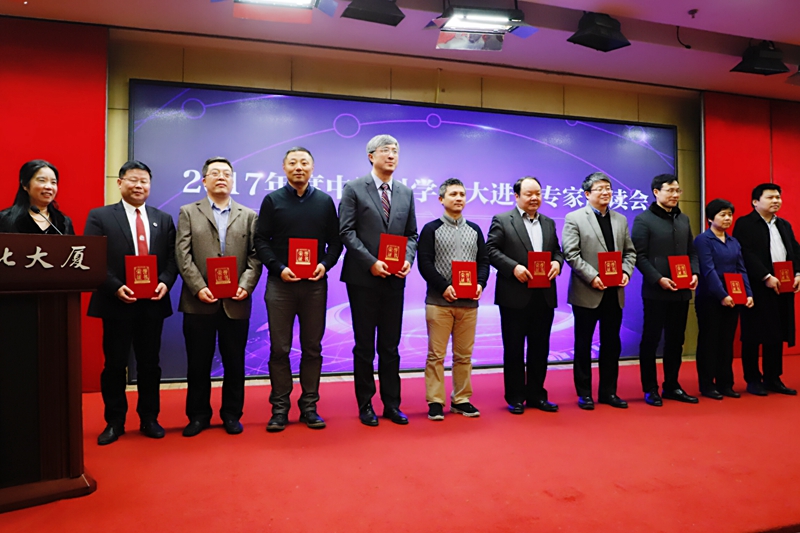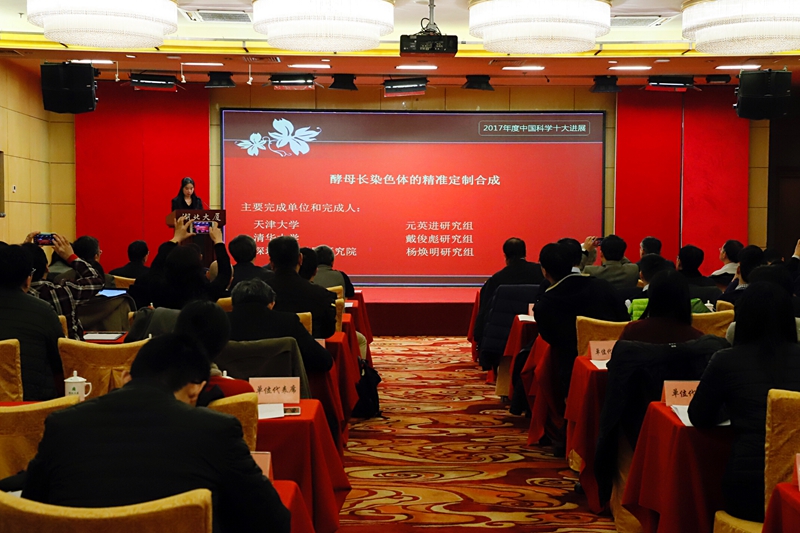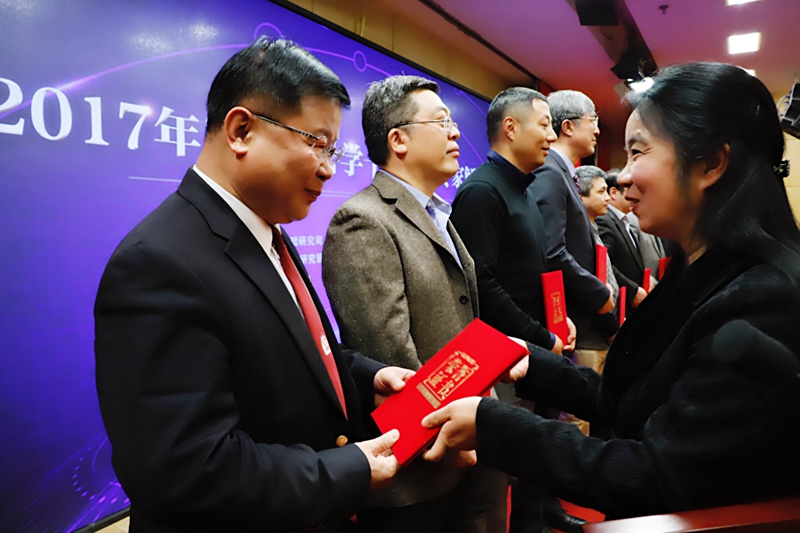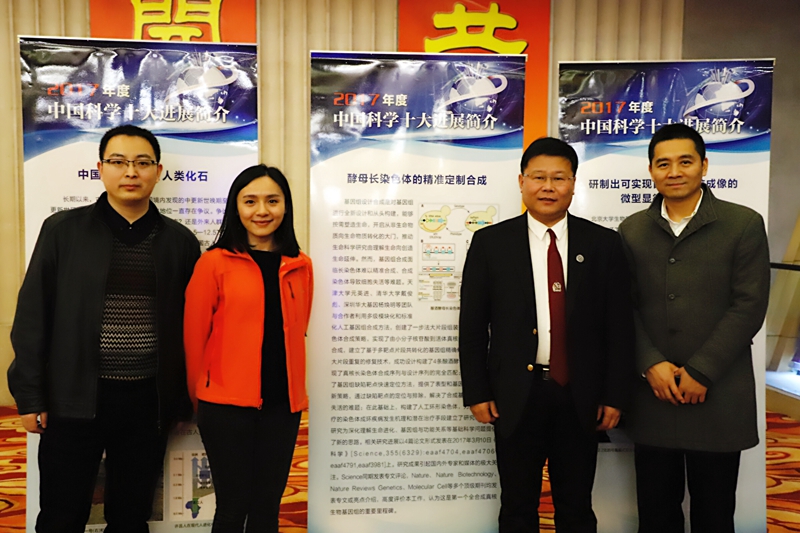On February 27, the “Meeting of Experts on the 2017 Top Ten Scientific Advances in China” election organized by the Ministry of Science and Technology (MOST) were announced in Beijing. Tianjin University was recognized for the synthesis of redesigned yeast chromosomes project led by Professor Yuan Yingjin from the School of Chemical Engineering and Technology, Tianjin University.

Sponsored by the High-Tech Research and Development Center of MOST, the top 10 selection has been successfully held for 13 sessions. The aim is to boost publicity for China's major scientific advances in basic research, motivate science and technology workers, popularize knowledge about fundamental science, enable the public to better understand, value, and support basic research, and create a sound social climate for science. The scope of the 2017 selection included 270 research advances recommended by the editorial departments of 5 journals: China Basic Science, Science and Technology Review, Bulletin of the Chinese Academy of Sciences, Bulletin of the National Natural Science Foundation of China, and the Chinese Science Bulletin. The whole process consisted of 3 phases, i.e. recommendation, primary selection, and final selection. Ten projects were finally selected and announced as the ten most important scientific advances of China in 2017.

Since its first annual selection in 2005, the “Meeting of Experts on the 2017 Top Ten Scientific Advances in China has been a brand for science and technology and highly recognized by experts and scholars. To date, this is the first time that a Tianjin institution as the first affiliate unit received such an award.

TJU’s Synthetic Biology Team invented a rapid mapping method for genomic defect targets and precise repair techniques for co-transformation of multiple target fragments and also constructed artificial ring chromosomes, which overcame significant obstacles in this field.

Genome design and synthesis is a new design and rebuilding of the genome. It can shape life as needed, open the door to transform from non-living material to living material, and promote life science research from understanding life to creating life. Genome design and synthesis provide new ideas for deepening understanding of fundamental scientific issues such as the evolution of life and the relationship between genomics and cellular function.
As an important model organism of eukaryotes, chemical synthesis of yeast can help humans to understand some basic biology problems. Professor Yuan Yingjin said the team has established precise control of genomic rearrangements, developed a rapid evolutionary approach to the strain, tapped into a number of key genes and pathways associated with important production performance, and obtained several highly productive strains that would be applied in medicine, energy, environment, agriculture, industry, and other fields.
By: Qiu Ya
Editors: Qin Mian and Keith Harrington






